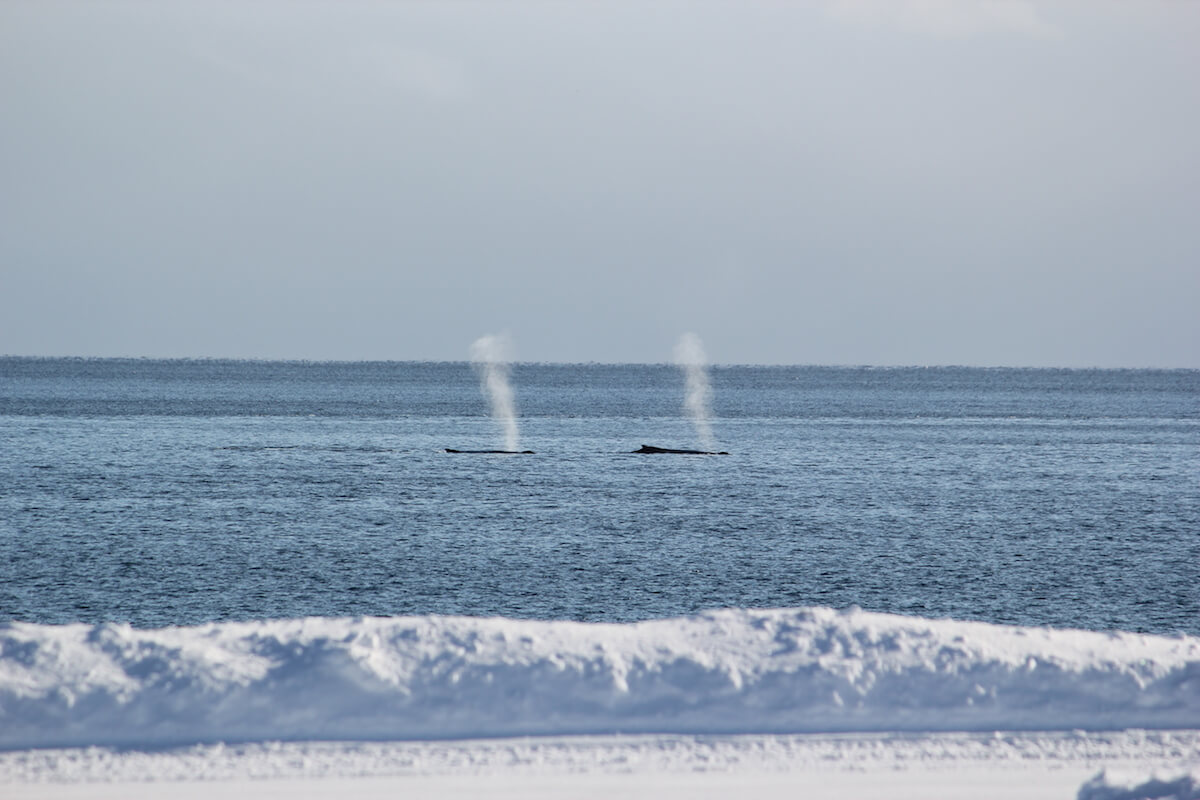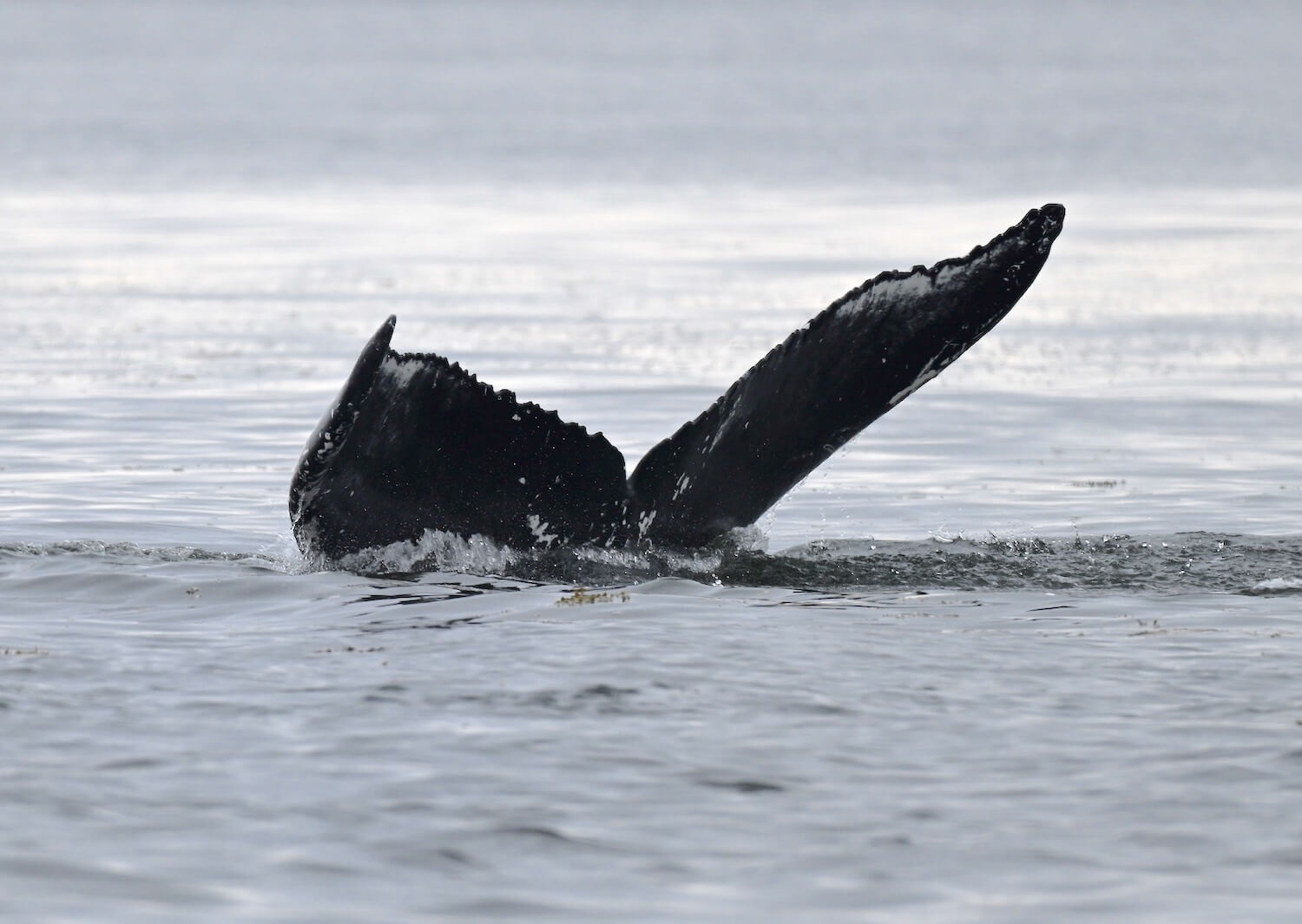Pointe-des-Monts, February 8: You don’t need a thermometer to know the air is frigid: sea smoke hangs over the St. Lawrence. When warmer water (“warmer” being relative here) comes into contact with very cold air, it evaporates. Despite the shroud of fog in front of his chalet, a local resident notices some movement on the River. A few seconds later, two black backs break the surface. It’s quite a surprise to have two humpbacks opposite his chalet in February. “In 52 years, this is the first time I’ve seen any this time of the year in Pointe-des-Monts,” exclaims one observer. “For the past 10 or 12 years, I’ve seen a pair of blue whales every year: a big one and a smaller one. But humpbacks, that’s a first!” He had seen them during the holidays as well. “As happy as I am to see them, I’m also concerned. Is it because we have less and less ice?”
For almost an hour, he observes a choreography that he had seen frequently last summer. Two humpbacks swim about two kilometres eastward, dive, resurface and double back two kilometres westward. He assumes this is some kind of feeding technique.
Since 2016, reports of humpbacks have been noted in February in the weekly sighting summaries. Are they the same individuals? Without photos, it’s impossible to know for sure. What we do know is that more and more individuals are observed in the St. Lawrence during the summer.
Gaspé Bay has very little ice these days, but beyond the bay, it is beginning to accumulate. Off the coast of Cap-aux-Os, a birder tallies about fifteen harbour seals and a single harp seal on February 10. “They were very vocal,” she notes, surprised. Howls and grunts alternate with splashing on the water. Harbour seals are usually considered to be among the least vocal pinnipeds when they are on the surface. However, in the presence of an individual of another species, they can sometimes react very noisily. Were they trying to scare the harp seal away?
Aboard his ship, a St. Lawrence captain crosses paths with a large herd of about a hundred seals swimming off Les Escoumins on February 8. Given the time of year and the size of the herd, it is likely they were harp seals.
In Gallix, a local woman takes advantage of the milder weather to do some snowshoeing along the River on February 12. She spots three seals drifting on a chunk of ice, occasionally raising their tails. Farther offshore, another sixty or so are at rest. Seals have been visible from Port-Cartier, too.
Have you observed any seals or whales? Don’t hesitate to email me! Your observation will contribute to next week’s column.





